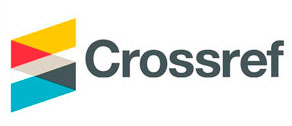Opportunities to increase the level of communicative competence of students in the context of modern philosophy of education
Abstract
The aim of the article is to define the direction of pedagogical actions in the context of changes in the modern philosophy of education to the formation of a communicative component of the professionalism of future teachers, and its main tasks - analysis of scientific works on the content of the concept of "communicative competence" and the ability to determine the level of mastering them by students. The genesis and content of the concept of "communicative competence", presented in various scientific sources and documents, is analyzed. It is substantiated that the communicative abilities of the future teacher are the character logical features of the personality. It is emphasized that the evaluation of the level of communication depends on the effectiveness of the performance by the individual of such socially significant functions as interaction and impact.
The purpose of the study was to solve the following problems: determination of the level of communicative development of future teachers on the knowledge of normative words, phrases and the use of synonyms, scientific concepts or their analogues in interpersonal communication and learning; revealing the extent to which young people use jargon and word-borrowing from various subcultures; the justified direction of pedagogical actions for the formation and development of communicative competence as representatives of a socially significant profession.
As a research tool, the article "Sociolinguistic method for determining the level of communicative competence of students" was developed by the author.
The level of mastering by the future teachers of professional knowledge, skills and habits is determined by means of the ECTS assessment system. The method is presented, which allows to determine the level of communicative development of future teachers for the knowledge of normative words, word combinations and the use of synonyms, scientific concepts or their analogues in interpersonal communication and study; identify the extent to which young people use jargon and word-borrowing from various subcultures. It is determined that in the context of the adoption of a new philosophical concept of education in the formation of general professional pedagogical competence in future teachers, pedagogical actions of the teacher should be aimed at mastering students with communicative competencies that reflect the formation of pedagogical thinking and the corresponding conceptual apparatus; development of the graduate's ability to communicate knowledge and skills to the students in a particular discipline..


